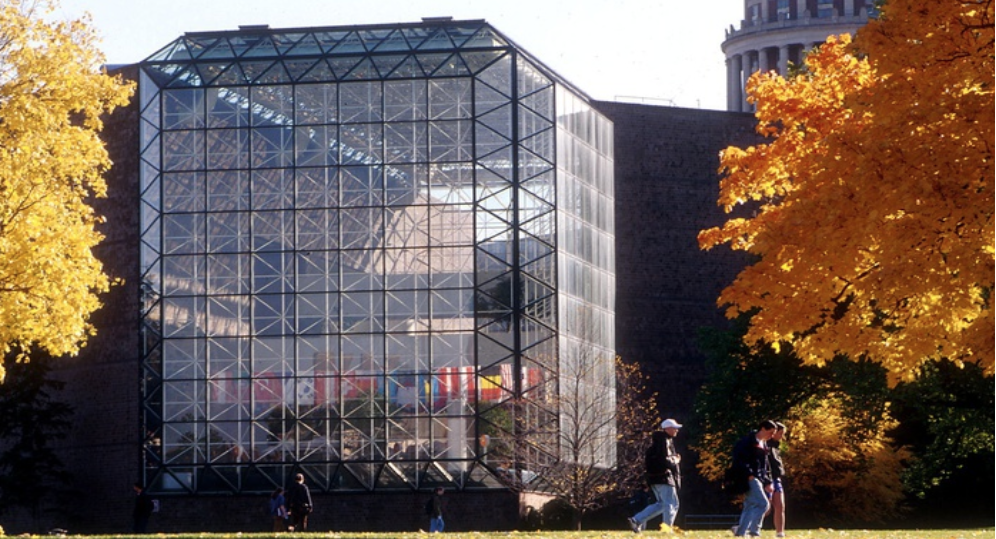CommentsVIEW FROM HERE-I.M. Pei, one of the world's most iconic and prolific architects, has died at the age of 102. Best known for his remarkable transformation of the Louvre in Paris and the Bank of China Tower in Hong Kong, Pei also left his fingerprint of genius on the Flower City.
In 1976, just after he completed the John Hancock Tower, in Boston -- and right before he finished the John F. Kennedy Library, also in Boston -- he built the Wilson Commons building at the University of Rochester.
As a central location for campus life, Wilson Commons provides space for gatherings, performances, lectures, exhibits, leisure, play, and eating. Among its many impressive features, the six-story glass atrium, which is adorned with flags representative of that year’s student body country of origin, make Wilson Commons a public gathering space that models democratic participation and global unity.
The building’s windows, for instance, exemplify the virtues of inquisitiveness and honesty that Pei strived for in all of his structures. It is, to speak poetically, a building that invites all who gather there to become a common body with a common purpose. The building itself is the torch but the people gathered within its walls are the torch igniters and torchbearers. As Pei himself once wrote: "The essence of architecture is form and space, and light is the essential element to the key to architectural design, probably more important than anything. Technology and materials are secondary."
Wilson Commons (photo above) brings together form, space, and light, in a way that is both aesthetically compelling and functional to the everyday affairs of an academic community.
In 1983, Pei won the Pritzker Prize, sometimes called the Nobel Prize of architecture. Simply put, he was not just a great architect, he was one of the greatest architects of all time. As the world pauses to honor the passing of this architectural supernova, this moment strikes me as an ideal opportunity for the citizens of Rochester to appreciate one of Pei's buildings in particular, and the unique role it plays in the intellectual and cultural life of our city. Thank you, I.M. Pei. Beyond words, anyone who cares about beauty and greatness will be humbled that you chose us.
(George Cassidy Payne is an editorialist, poet, and social worker. He lives and works in Rochester, NY. George is a contributing writer to CityWatch LA and has been published in a wide variety of domestic and foreign outlets, including The Atlantic, The Wall Street Journal, USA Today, The Buffalo News, The Albany Times Union, The South China Morning Post, The Havana Times, Counterpunch, and many others.)
















